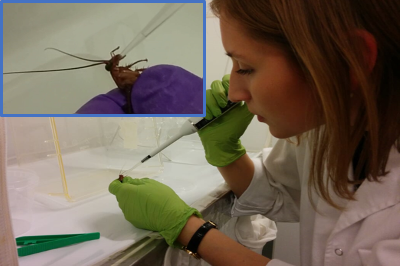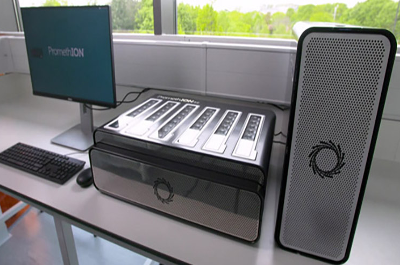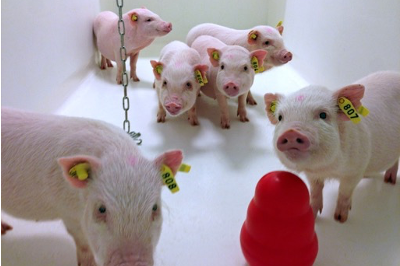Supported by Innovation Fund Denmark, we provide research services for evaluation of pre- and probiotic food additives and drug candidates.
We offer preclinical animal models for both early stage screening of formulation and late stage models with high predictive value for design of clinical studies.
We monitor the changes in the gut resulting from administration of pre- and probiotic food additives and Investigational Medicinal Products (IMPs).
We provide preclinical models with intestinal dysbiosis resembling clinical disease in man (Intestinal Bowel Disease) and dysbiosis due to food intolerance.
By application of state-of-the-art next-generation sequencing and bioinformatic tool we can identify specific and dynamic changes in the components of the gutbiome with very high resolution.
We design our studies with a strict focus on the regulatory requirements to a resulting data package. All studies are SOP-based and QA-controlled and can be designed to meet specific GXP-requirements (GLP, GMP).



The CRO activities are based on many years of collaboration between academia and business partners.
We combine state-of-the-art technological platforms for sequencing and bioinformatic with high-confinement animal colonies in a SOP-controlled research environment.
With 10+ years of experience, we aim to provide data packages designed to support regulatory requirement for the products of the customers.
In the biotech and pharma industry, early-stage screening of compounds are often done in vitro or in silico where laboratory setting are used to mimic the gastro-intestinal conditions.
We complement such studies with invertebrate animal models, where the intestinal conditions are studied in situ (in the right place) in a physiologically active gut environment. The chosen models has a microbiological intestinal composition that share common characteristics with the human gutbiome.
Resulting data packages are often used for designing further preclinical development.
As an omnivorous animal, the minipig share a lot of the gastro-intestinal feature know from the human gut. In this respect, the minipigs are translationally superior to conventional rodent models. Late stage preclinical studies in minipigs may provide data packages with high predictive value for effect and mode-of-action for design of further clinical studies in man.

Professor, PhD
Principal Investigator

Head of Research, PhD
Minipig models

Assoc. professor, PhD
Insect models

Professor, PhD
Pre- and Probiotics

Professor, PhD
Sequencing and Bioinformatics

Stable and Laboratory Coordinator
This project is exactly what human microbiome research needs to make an easier transfer of knowledge from basic science to application possible.
The project may have a very strong impact on the development of targeted interventions to modulate a dysbiotic gut microbiome.
Timely very important project, with good chances to become a light house project, and with strong interaction between academia and industry.
— Prof. Christian Kapel
MiniGut PI
Dr. Neergaards Vej 3
2970 Hørsholm, Denmark
~